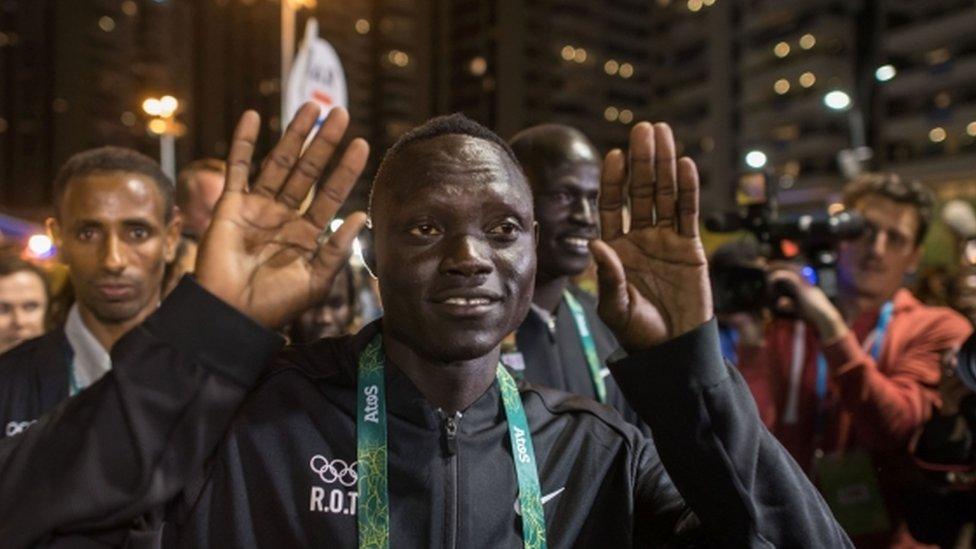'They shot my dad in front of me' - African refugees eye Olympics
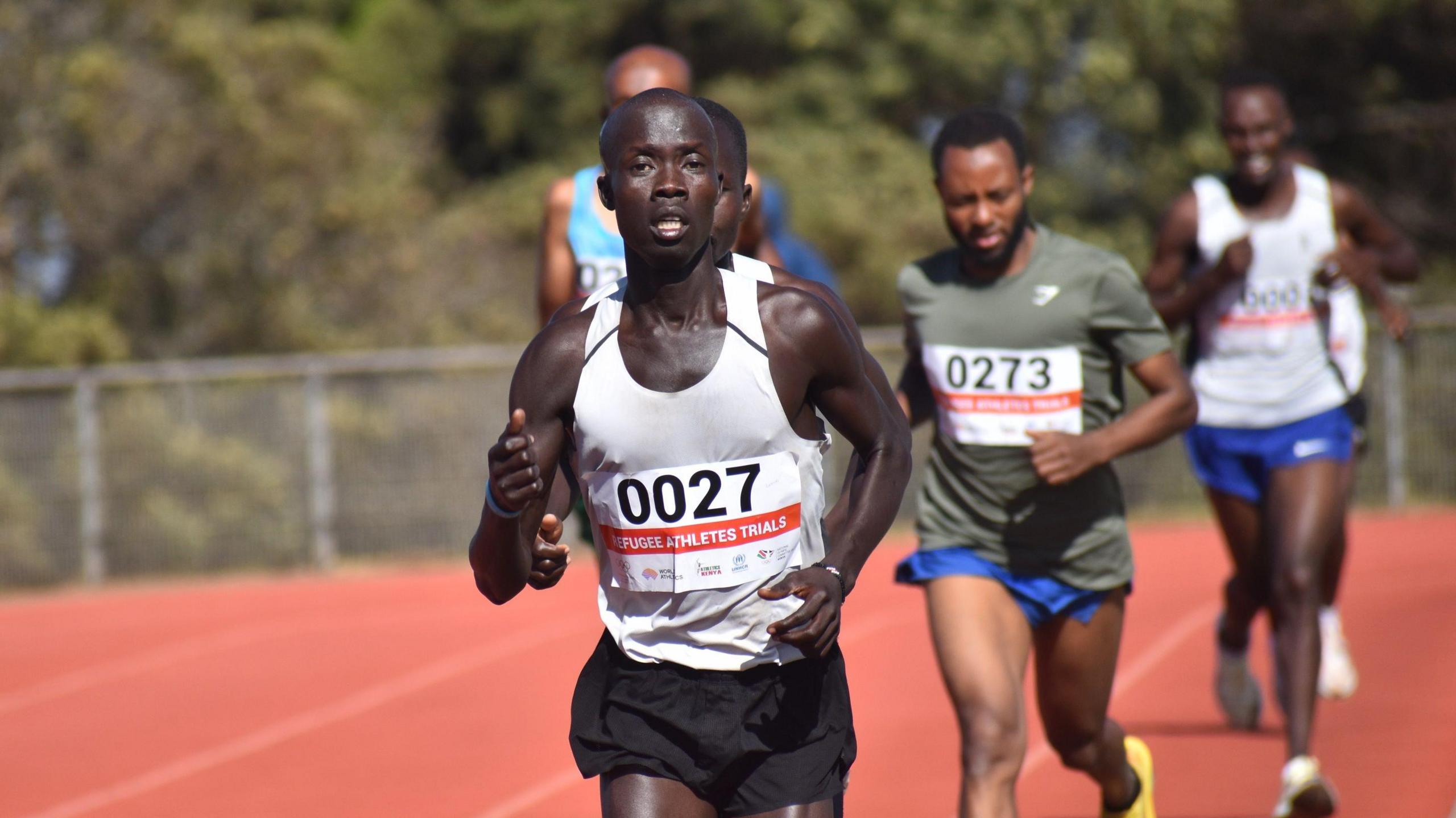
After fleeing conflict in South Sudan, James Lokidichi hopes to race over 1500m or 5,000m at the Los Angeles 2028 Olympic Games
- Published
A scar on the right side of James Lokidichi's head serves as a permanent reminder of the conflict he fled when he was a child, carrying his younger brother with him.
Yet pain remains buried deeper inside as, holding back tears, he recounts the day in 2011 that family members were killed by armed men and he was forced from his home in what is now South Sudan.
"They shot my dad and my uncle in front of me," the 23-year-old told BBC Sport Africa.
"They burnt the house and I got burnt too while I was crying for my dad and uncle. They shot my mum in the hand. She ran away and left us.
"I grabbed my brother when my mum ran away. They [the fighters] said 'Leave these boys'."
The pair have not seen their mother since.
Chasing a sporting future
The brothers eventually found their way to neighbouring Kenya, and Lokidichi is now one of almost 300,000 residents in the Kakuma Refugee Camp., external
After his childhood trauma, he believes sport can be a stepping stone to a better life and is chasing a place in the Refugee Olympic Team (ROT).
The middle-distance runner was among over 100 attendees at trials at the Lornah Kiplagat Sports Academy on the outskirts of Iten last week, when the International Olympic Committee (IOC) was scouting talented runners, judokas and taekwondo athletes to support via scholarships.
Lokidichi, inspired by Kenyan marathon great Eliud Kipchoge, hopes to provide motivation for fellow residents in the refugee camp in the north-west of the country.
"When we get successful, we will go assist those who remained behind. We will advise others in the camp," he said.
"We will demonstrate to them there is help and hope for the future. We keep on fighting together as a team."
Dreams of Dakar 2026
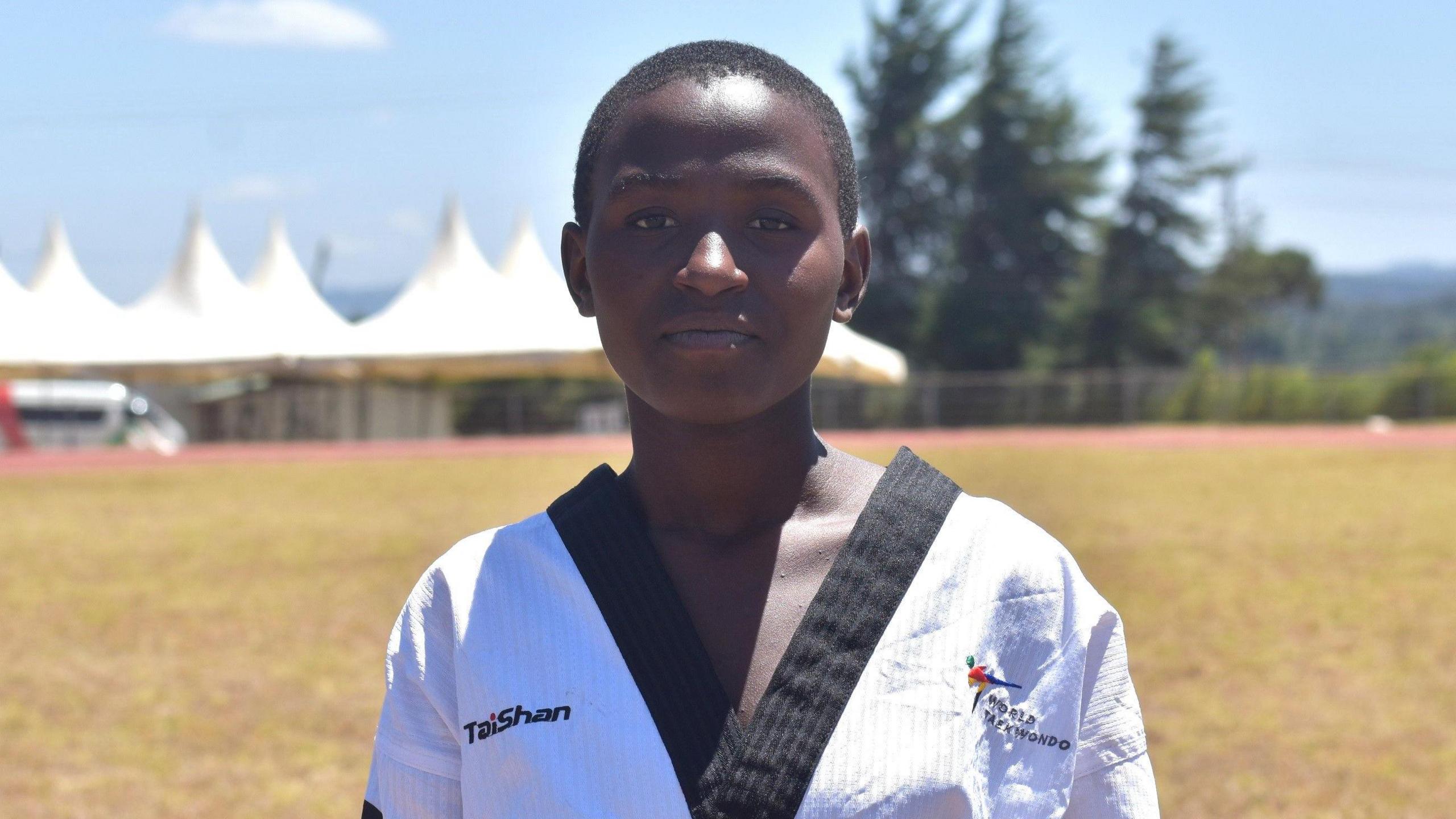
Laurence Namukiza, originally from DR Congo, wants to represent the Refugee Olympic Team in Senegal next year and also aspires to become a pilot
The ROT made their inaugural appearance at the Rio de Janeiro Olympic Games in 2016.
Cameroon-born Cindy Ngamba became the team's first medal winner when she took bronze in the women's middleweight boxing at Paris 2024.
A refugee squad is now being assembled for the Dakar 2026 Youth Olympics - the first major IOC event to be staged on African soil.
Teenager Laurence Namukiza hopes to secure a place among that group, and her three taekwondo victories at the trials could help her achieve that aim.
The 15-year-old is a student at a school in Kakuma that was established by and named after Hollywood actor Angelina Jolie, a United Nations Refugee Agency (UNHCR) goodwill ambassador.
The hardship of life in the camp - where monthly handouts to residents were reduced from 1,500 Kenyan shillings ($11.60, £9.20) to 950 Ksh ($7.40, £5.80) per month - compelled Namukiza to take up the discipline when it was introduced to her school in the middle of last year.
"I promised myself I will perform well so that I am able to assist my family," she said.
"You will find a family of 16 but the food distributed is for five people.
"Getting work is difficult if you do not have a formal education and certificates. My mum [is] suffering to feed us.
"When I am successful, I will get them out of Kakuma to a better place."
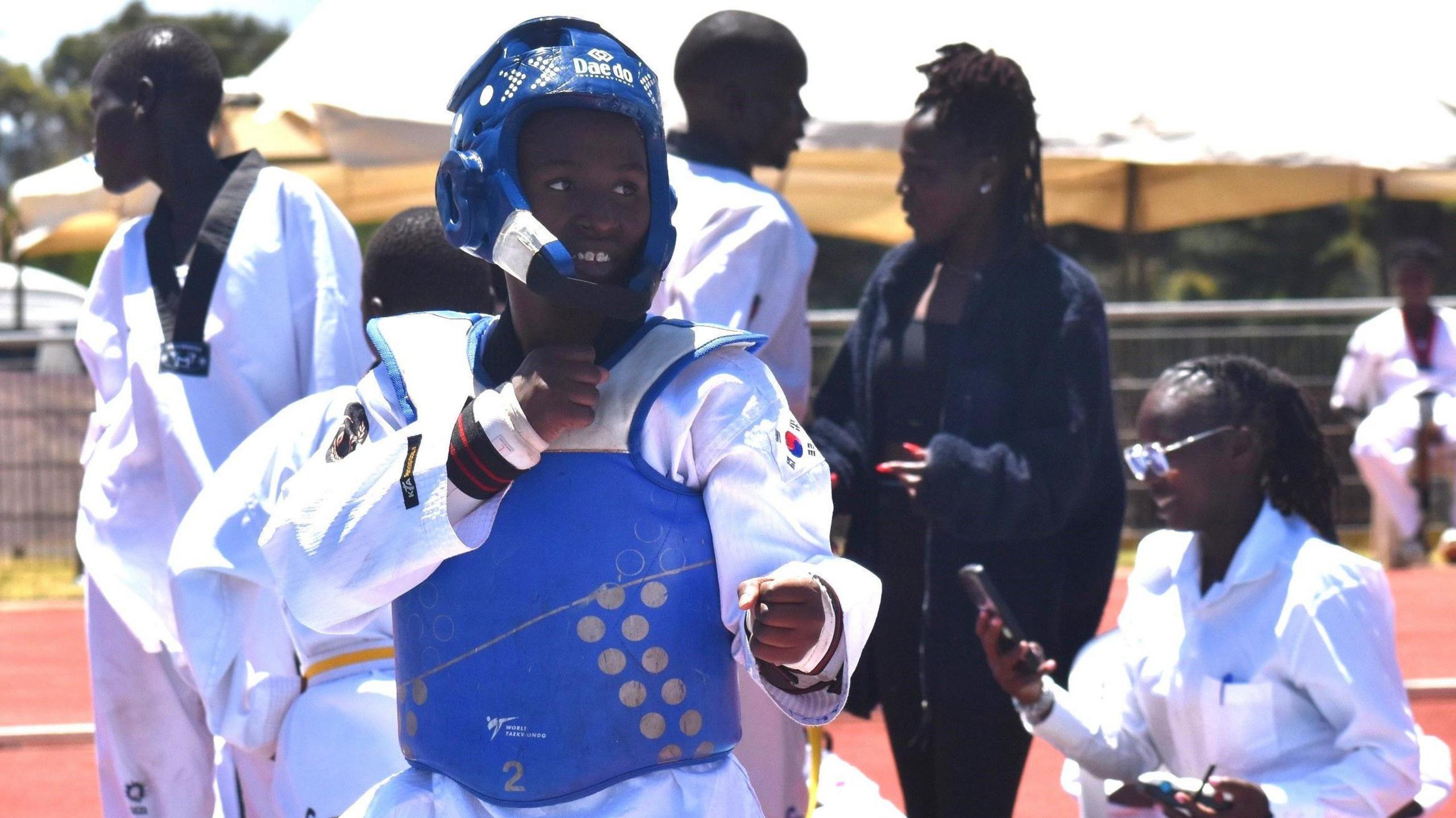
Namukiza won all three of her matches in the girls' 54kg category with calculated attacks
Namukiza was still a baby when her family were forced to leave their home in Uvira, DR Congo, in 2010.
The fourth-born in a family of nine children, taekwondo has instilled the values of discipline and resilience.
It has also helped her challenge gender stereotypes and provided self-defence skills.
"I remember people telling me 'Why are you taking up this sport? It's for boys'," she recalled.
"With taekwondo training, now I know how to fight. I believe in myself and I can protect myself against anyone who wants to harm me, and I can also help other girls in Kakuma.
"But I am here to prove that sports is for all."
Hope for the future
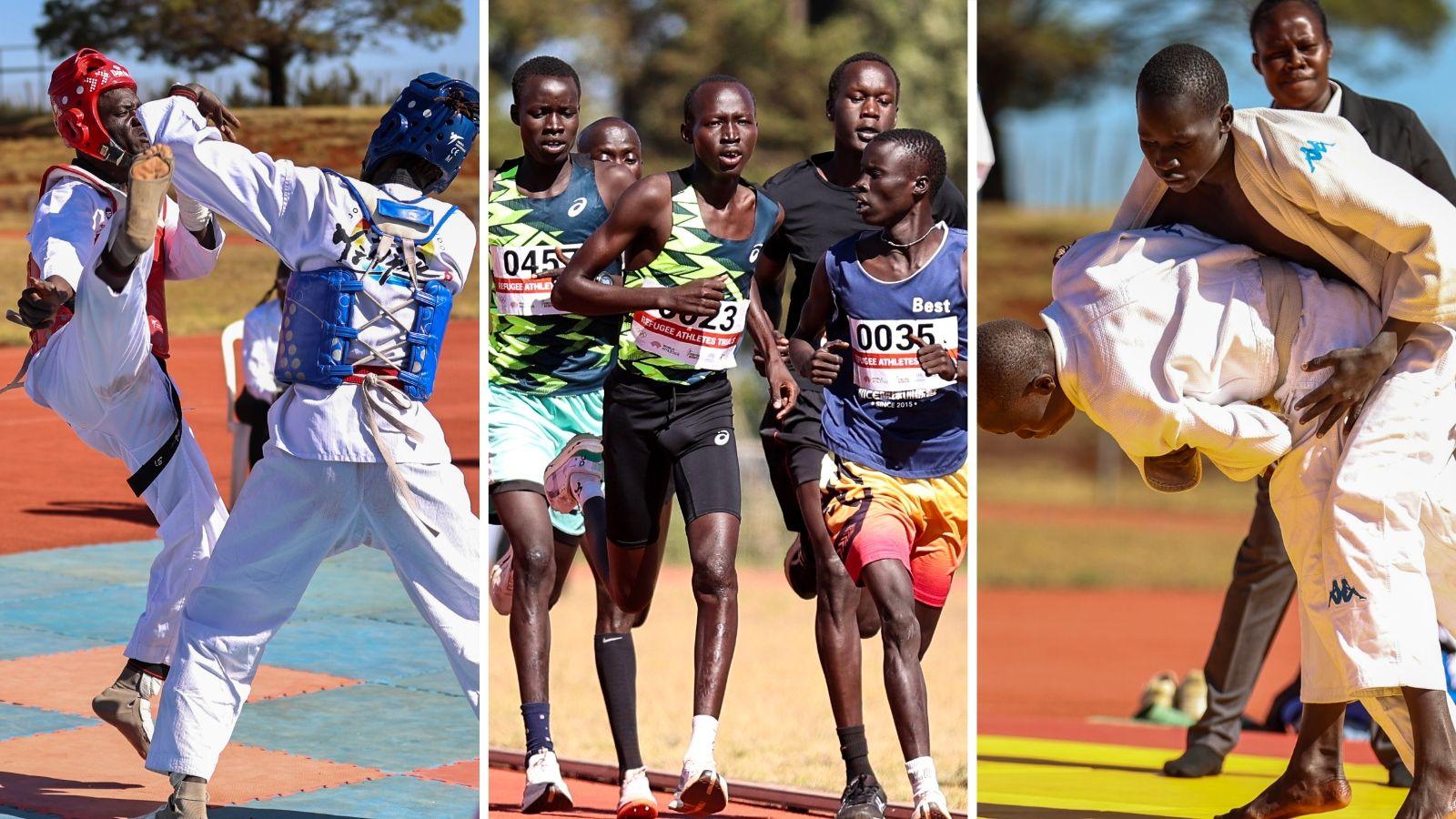
ROT scouts ran the rule over taekwondo and judo contests as well as races on the track in Kamariny on the outskirts of Iten
The ROT trials were held in collaboration with Kenya's National Olympic Committee (NOC), Athletics Kenya and the UNHCR as well as World Athletics and corresponding judo and taekwondo federations.
A range of emotions were on show amid a competitive atmosphere, with anticipation, anxiety and resilience etched on faces.
There was also an overwhelming sense of freedom.
"When we remove them for one day or two days out of the Kakuma camp, they feel appreciated and validated," Paul Tergat, the president of Kenya's NOC, told BBC Sport Africa.
"That is why it's very important to give them the opportunity and exposure."
Former 800m world champion Janeth Jepkosgei, now an ROT coach with World Athletics, is well aware of the unifying power of sport.
"I would like to take these athletes to the next Olympics and I would love to see them reach the finals," the 41-year-old said.
"We would like to change that sad moment to happiness when they cross the line and be winners."
The latest figures released by the UNHCR show that Kenya is home to over 820,000 registered refugees and asylum seekers.
With a civil war continuing in Sudan and fighting escalating in eastern DRC, that figure could grow.
"No-one wants to be a refugee," Tergat said.
"We want to use sports to give them dignity and honour. They are our brothers and sisters, so we need to give them this opportunity to grow their talent and encourage them."
At the end of the trials, the winners were recognised but one thing was clear - that victory did not mean automatic selection for an IOC scholarship.
The athletes returned to Kakuma and wait to see whether fate will shine on them.
Until then, they are holding on to hope.
Related topics
- Published6 August 2024
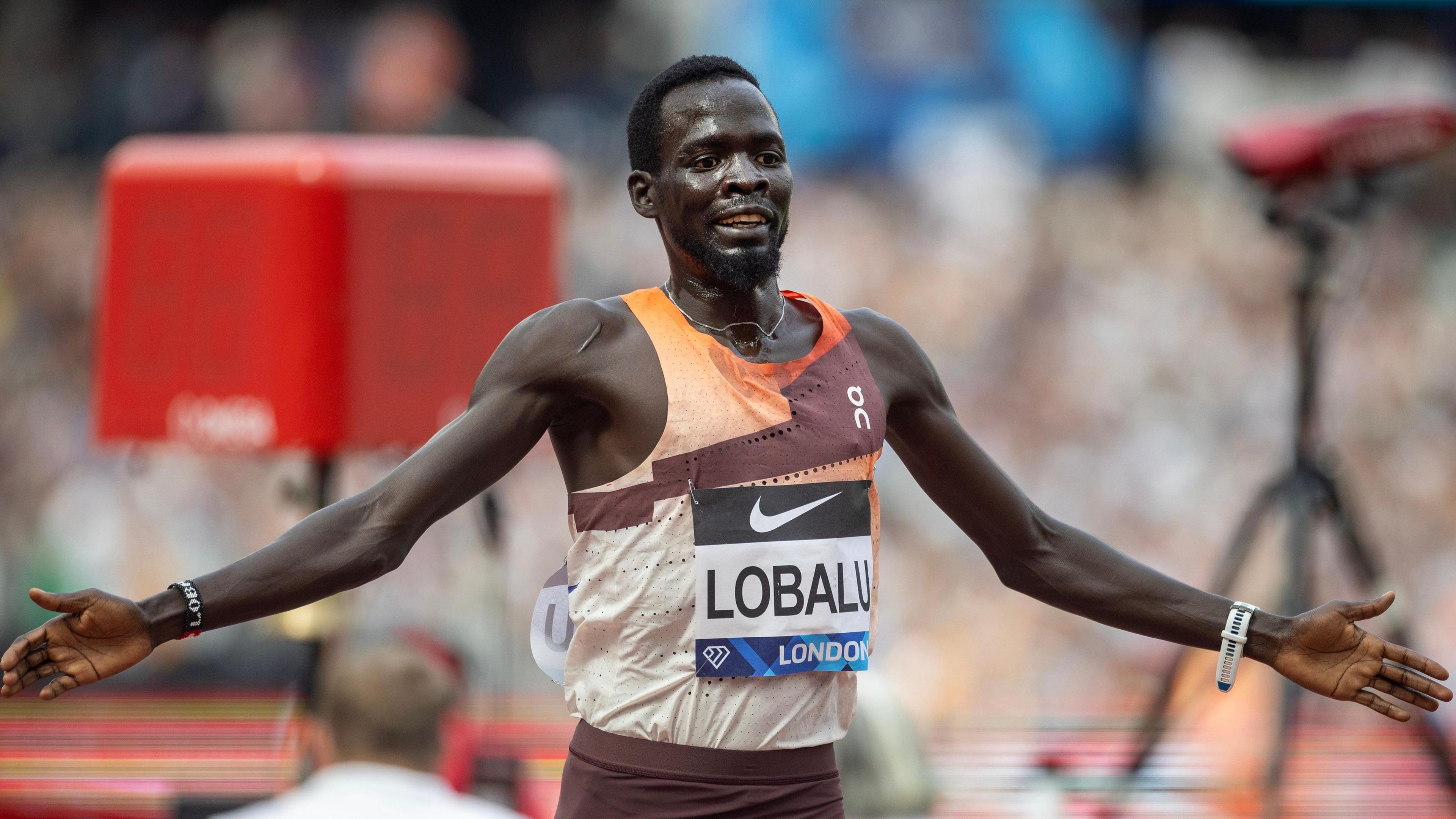
- Published21 August 2016
